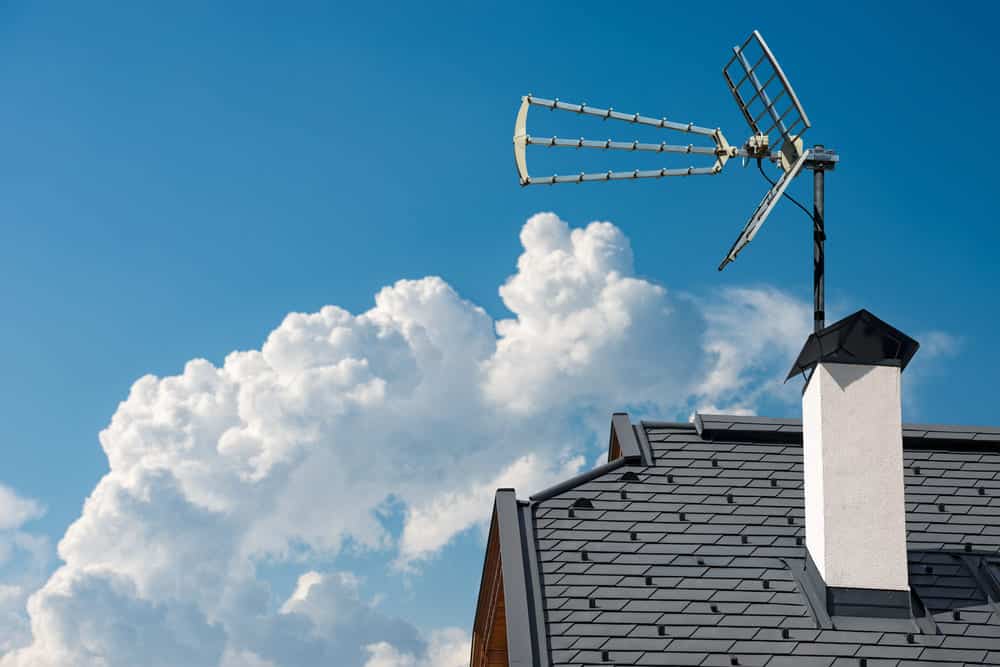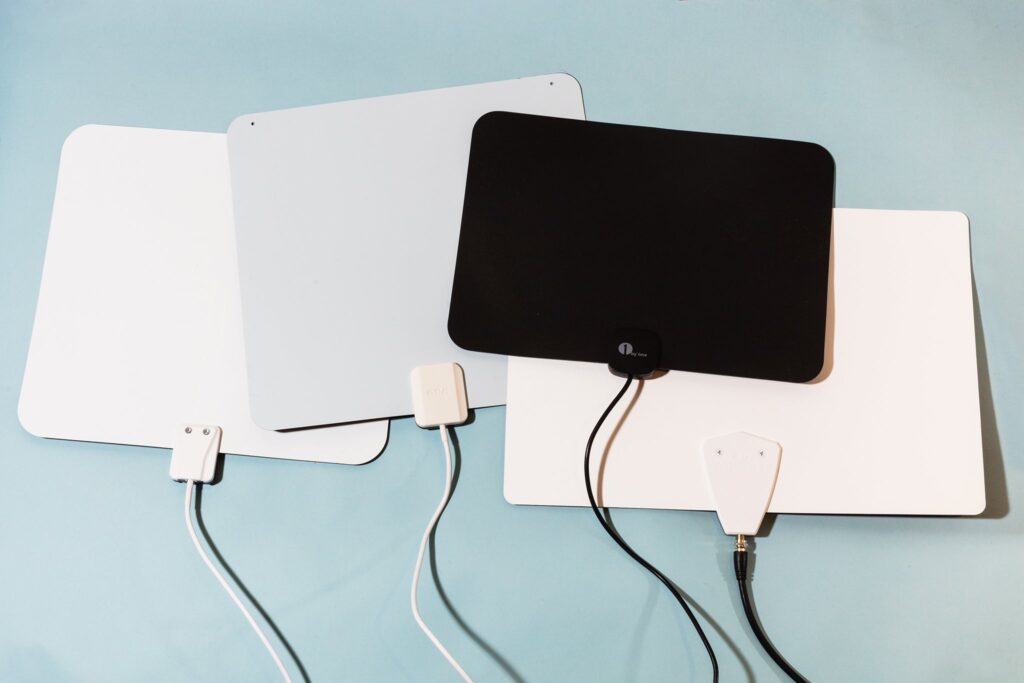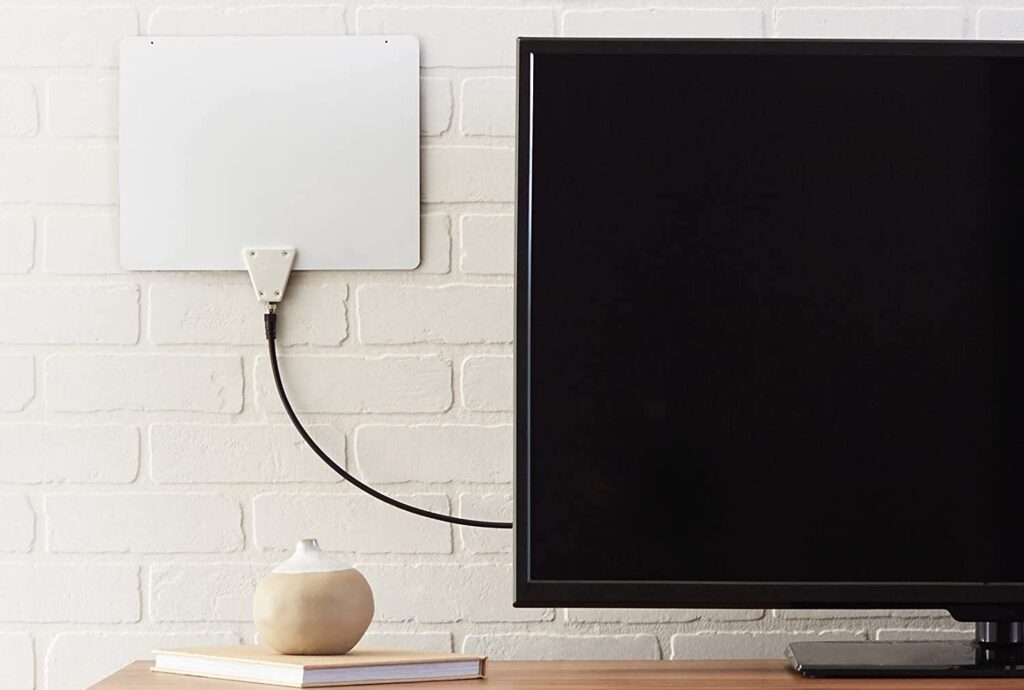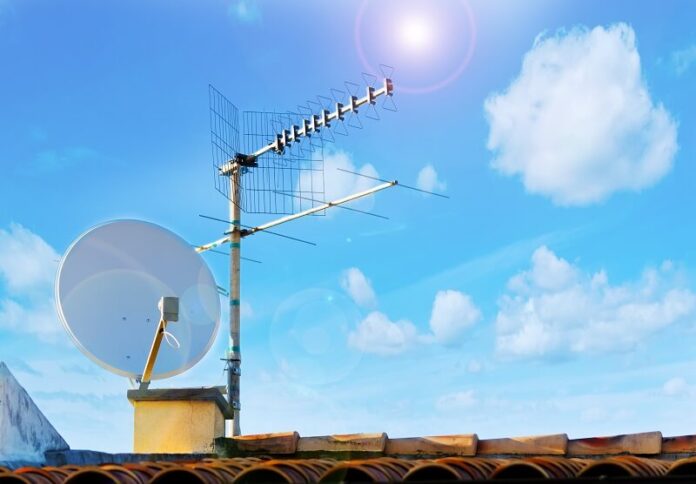Both indoor and outdoor antennas have their unique advantages and disadvantages. Choosing between the two can be a daunting task in certain scenarios, especially if you’re not familiar with the technology behind them.
In this article, we bring you our favorite tips for choosing between indoor and outdoor antennas to help you reach the most optimal signal on all of your devices.
So, without any further ado, let’s get right to the bottom of things!
Consider your position.

If you’re positioned somewhere near the TV broadcast towers, an indoor antenna might be the perfect option for you. It’s small, discreet, so it won’t affect the aesthetic appeal of your home.
In other instances, when you’re quite far from the towers, an indoor antenna might not be powerful enough to get you the signal you deserve. Outdoor antennas are stronger, larger, and more durable than their indoor counterparts. If you’re worried about how this would affect the visual aspect of your home, don’t sweat it too much! Today, there’s a variety of different models, some of which could blend with your style as perfectly as you need it to be.
Overall, the best type of antenna heavily depends on your specific needs and your location. As long as you’re close enough to the broadcast towers, indoor antennas are a great option, especially if you dislike how outdoor ones look. Otherwise, outdoor antennas might be your best (and only) option.
The type of building you’re living in.
If you’re living in an apartment complex, getting an outdoor aerial for your TV system might not be the best idea. In fact, it may be completely impossible to install one depending on the body corporate of your building.
Similarly, if you’re dealing with strict Home Owner Association rules, your options could be extremely limited. Either way, make sure you’ve done your research before you invest in an expensive aerial, so you don’t end up breaking certain codes and regulations.
If this resembles your situation, indoor antennas are your only option. Of course, when you’re living far from the TV broadcast towers, picking up signals with these types of antennas might prove to be a bit difficult. You can either invest in a more powerful model or purchase an amplifier. Make sure you position it properly for maximum efficiency.
Signal power.

Generally speaking, outdoor antennas are much more powerful than their indoor alternatives. If you’re living in a large home and you want to have good reception in all of your rooms, you’d probably benefit from an outdoor aerial.
Again, it all depends on your specific needs and requirements. Make sure to do your research until you’ve found what works best for you. We recommend getting in touch with various providers to seek more information on your options.
Besides that, you could find indoor aerials that are pretty powerful nowadays. Your signal will never be as strong as it would be with an outdoor one, but if it works for you, then it’s a completely viable option.
Whatever you do, though, remember to find the perfect position for your receiver. Place it as high up as you can, and keep it away from other devices that could interfere with your signals such as fridges and microwaves.
Your budget.
In most cases, indoor antennas are way cheaper than outdoor ones. If you’re working with a tight budget, indoor is the way to go. Besides the price of the aerial itself, you also won’t have to deal with installation expenses.
Of course, sometimes it’s worth going over your budget a little bit, especially if you really enjoy watching TV without any interruptions. There’s nothing worse than getting a laggy image in the middle of your favorite program, so don’t risk it if you can afford it.
As noted on this website, getting expert help or advice is crucial when you’re dealing with aerial installations. Industry professionals can help you make your antenna work by proper positioning, installation, and maintenance, no matter how old or cheap it may be.
Besides that, outdoor antennas will last you much longer than indoor ones, especially if they’re installed correctly. So, in the long run, they make for a more economical choice.
Do your research.

As you can probably guess, there are a plethora of different aerial options available nowadays. You can find everything you need with a little bit of research. Don’t be tempted to purchase the first product you come across, as you can never guess its quality and durability at first glance. Instead, make sure you’ve read up on every review and product rating you could find, and try seeking expert advice as well.
Again, as there’s such a wide range of options you can choose from, you’ll certainly find something that fits your needs, preferences, and your budget, so don’t settle for anything less!
Consider the weather.

Lastly, if you live in an area with frequent extreme weather, outdoor aerials might not be for you. Even though many of these are made to be durable and resistant to such harsh conditions, you’ll still have a plethora of signal issues during storms and downpours of rain.
Besides, you’ll have to deal with constant repairs and readjustments when the weather gets particularly bad. It’s simply a price not worth paying.
While indoor antennas might still be affected by rainy weather, they won’t be at risk of suffering external damage, which is a huge plus to your wallet. You can always get a quality amplifier to deal with signal interruptions during powerful storms.
The bottom line
All in all, there are a couple of things you should consider when you’re choosing between indoor and outdoor antennas – the weather, your budget, your living situation, and above all, your distance to the TV broadcast stations. If you still cannot decide, even after reading this article, we suggest you seek help from an industry professional instead.
Whatever you decide to do, we hope our article helps you find the perfect solution for your specific circumstances and we wish you the best of luck in all of your future endeavors.








